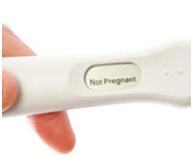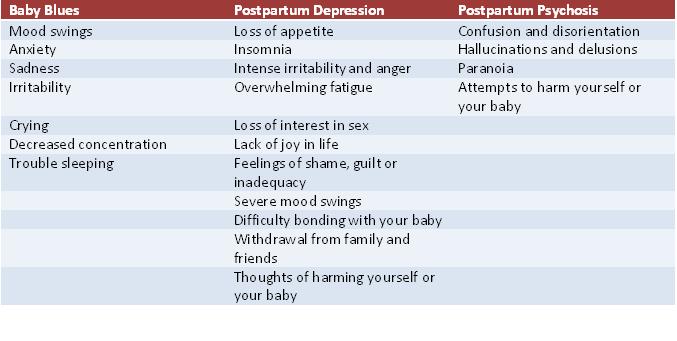Welcoming a new baby, or babies, into your family can be an exciting time filled with love, joy, and new beginnings. But what happens when things don’t go as planned? For some women or couples, the pre or postnatal experience can be marked with unexpected challenges and complications.
Some of the complications that can occur include:
Infertility
According to the American Society for Reproductive Medicine, “Infertility is the result of a disease (an interruption, cessation, or disorder of body functions, systems, or organs) of the male or female reproductive tract which prevents the conception of a child or the ability to carry a pregnancy to delivery. The duration of unprotected intercourse with failure to conceive should be about 12 months before an infertility evaluation is undertaken, unless medical history, age, or physical findings dictate earlier evaluation and treatment.”1
Unfortunately, infertility is more common that many people realize. Did you know that approximately 1 in 8 U.S. couples struggle with infertility?
Despite this high number, infertility continues to be a “hidden disease” often associated with stigma and misunderstanding. And contrary to common belief, it’s not just a woman’s issue. In fact, 30% of infertility cases are due to male factors and 30% are due to female factors, while the remaining cases are due to unexplained, combined, or other factors. While the causes of infertility are predominantly associated with physical issues (e.g., ovulatory dysfunction, sperm problems, endometriosis, tube problems, etc), there are significant emotional consequences to infertility.
The psychological impact of infertility can include depression, feeling of loss and grief, shame and guilt, anger, loss of control over your body, low self-esteem, anxiety, isolation, and the list goes on.
This stress can also negatively impact one’s relationship with their significant other and intimacy, as well as relationships with family and friends. Many couples describe infertility as one of the most stressful experiences of their lives. If you are diagnosed with infertility, finding ways to cope with this stress is necessary for your health and well-being, regardless of whether you decide to pursue medical treatments for infertility, adoption, or live without children.
There are many options that can help you reduce stress and live optimally on your path. These include yoga, exercise, acupuncture, meditation, psychotherapy, as well as many other healthy avenues.
Working with a knowledgeable psychologist can help you work through, reduce, and manage distressing emotions associated with infertility. Additionally, psychotherapy can help you with relationship difficulties that are secondary to infertility, and provide you with unconditional support for making the decisions that are right for you.
Baby blues, Postpartum depression, and Postpartum Psychosis
 Your much anticipated bundle of joy has finally arrived! You are filled with joy and love for your precious baby. Everything about her is perfect. And you are just glowing!
Your much anticipated bundle of joy has finally arrived! You are filled with joy and love for your precious baby. Everything about her is perfect. And you are just glowing!
With ease you gracefully scoop her up and begin to bond over breastfeeding. Your supportive partner has dinner fixed and the house clean, helping to facilitate a smooth transition at home. You and baby easily fall into a routine, as your keen mother’s instinct kicks in. Yes, it’s all falling into place, just as you knew it would.
S-u-r-e. That’s what happened! The reality is newborns take work, and it can be challenging adjusting to life changes with your new baby, even when things do go well. But what about when things don’t go as you had hoped they would?
After giving birth, a woman’s body goes through a host of hormonal changes that can make adjusting to motherhood and a new baby a difficult thing. Add on the physical demands of taking care of an infant and the dearth of time left over for self-care and sleep, and you can see just how challenging this time can be.
According to the American Pregnancy Association, approximately 70-80% of all new mothers experience some negative feelings or mood swings after the birth of their child.2 The severity of these negative feelings can range greatly from the common “baby blues” to more serious postpartum depression, or to the more rare and severe postpartum psychosis.
Here’s a rundown of some of the differences and symptoms of these 3 conditions according to the Mayo Clinic3:
 While the common “baby blues” are transient and usually lessen and disappear within the first couple weeks after birth, postpartum depression and psychosis are serious and should not be ignored.
While the common “baby blues” are transient and usually lessen and disappear within the first couple weeks after birth, postpartum depression and psychosis are serious and should not be ignored.
Talk with your doctor if you are experiencing any of the above symptoms that persist for over 2 weeks without lessening, are having difficulty caring for your baby, or if you’re having thoughts of harming yourself or your baby. It can be hard to admit to feeling depressed after the birth of your new baby. Working with a psychologist can help you overcome depression and get back into a healthy state of mind for you, your baby, and your family.
Loss (miscarriage, infant death)
 The sadness associated with the loss of a baby is unimaginable. Tragically, miscarriages are all too common, with 10-25% of all clinically recognized pregnancies ending in miscarriage prior to 20 weeks gestation.4 Stillborn death occur after 20 weeks, and happen in about 1 in 160 pregnancies.5 And while the rates of Sudden Infant Death Syndrome (SIDS) are significantly dropping, still approximately 2,500 death occur per year.6 Feelings of grief, loss, emptiness, isolation, sadness, and even anger and resentment are normal parts of bereavements after the loss of a baby.
The sadness associated with the loss of a baby is unimaginable. Tragically, miscarriages are all too common, with 10-25% of all clinically recognized pregnancies ending in miscarriage prior to 20 weeks gestation.4 Stillborn death occur after 20 weeks, and happen in about 1 in 160 pregnancies.5 And while the rates of Sudden Infant Death Syndrome (SIDS) are significantly dropping, still approximately 2,500 death occur per year.6 Feelings of grief, loss, emptiness, isolation, sadness, and even anger and resentment are normal parts of bereavements after the loss of a baby.
However, if these feelings significantly impact your daily functioning or persist for several months, then your may be experiencing complicated bereavement or depression. If you have suffered a loss and are struggling to heal, then working with a psychologist can be beneficial in facilitating a healthy healing process and honoring your lost baby. Nothing can take away or replace your baby, but you can find healthy ways to mourn, come to terms with your loss, connect with loved ones, and find hope and peace again.
References
1 The American Society for Reproductive Medicine. “Infertility”. http://www.reproductivefacts.org/topics/detail.aspx?id=36
2 American Pregnancy Association. “Baby blues”. 01/2013. http://americanpregnancy.org/firstyearoflife/babyblues.htm
3 Mayo Clinic staff. “Postpartum Depression”. 9/11/2012. http://www.mayoclinic.com/health/postpartum-depression/DS00546/DSECTION=symptoms
4 American Pregnancy Association. “Miscarriage”. 11/2011. http://americanpregnancy.org/pregnancycomplications/miscarriage.html
5 American Pregnancy Association. “Stillbirth: Trying to Understand”. 01/2013. http://americanpregnancy.org/pregnancyloss/sbtryingtounderstand.html
6 American SIDS Institute. http://www.sids.org/

